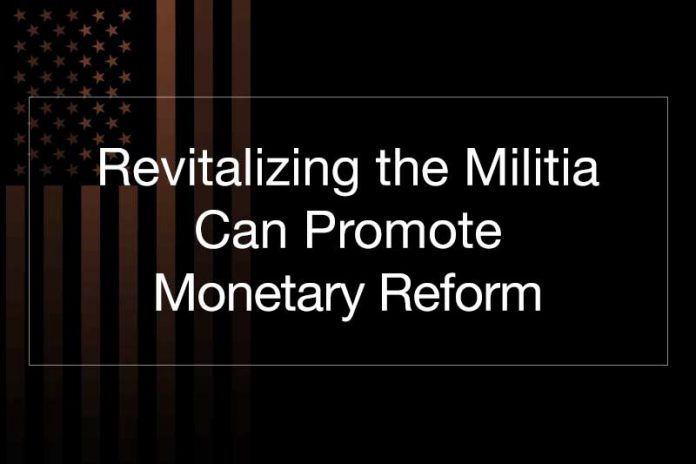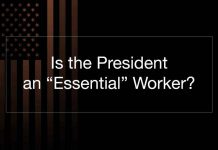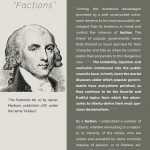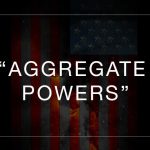Last Updated on October 6, 2021 by Constitutional Militia
Political theory identifies the two greatest powers of government as The Power of the Purse and The Power of the Sword. Therefore, if any powers will serve, these two powers ought to be capable of being worked in tandem to save America from the greatest and most immediate danger facing her: namely, the collapse of the monetary and banking systems—or scams, if you prefer the language of hard-nosed, unabashed realism—that now plague this country.
Make no mistake about it: There will be monetary and banking crises in America’s not-so-distant future. The monetary and banking systems are inherently unstable and inevitably and inexorably self-destructive. The systems’ failure may be chronic—a long drawn-out degeneration; episodic—a series of sharp, but relatively limited crises; or even catastrophic—a single mammoth collapse. But fail they will.[1] And even if the systems do not self-destruct, they can be destroyed by outside actors and events—in particular, the emergence of the Islamic gold dinar and silver durham.[2]
Also make no mistake about it: The Establishment will not reform the monetary and banking systems on its own initiative before a major crisis breaks out, for the simple reason that it cannot fashion a true reform—as opposed to a refurbishment or rehash—of the present systems that will maintain its power over, and profits from, America’s economy. Because rational economic calculation is impossible in a socialist economy, and extremely difficult in a fascist economy, no workable reform of money and banking can come from the top down, through the ministrations of politicians, bureaucrats, and the special-interest groups they serve. Rather, it must come from the bottom up, through the free market. But the Establishment cannot control a bottom-up, free-market reform. And there is zero likelihood that such a spontaneous, popular reform would confirm the Establishment in its position of economic dominance. Which, of course, is why the Establishment imposed on this country a system of central banking and fiat legal-tender currency irredeemable in silver or gold in the first place.[3]
Reform through purely private action is possible. Yet the most realistic prediction must be that private action will afford too little reform and will arrive too late.[4]
Also not beyond the realm of probability is that such workable alternatives as this author’s State electronic gold currency plan will probably not be tried at all, or at least not in time.[5] For even State politicians who are not the Establishment’s outright stooges are likely to continue to concede plenary authority over money and banking to the General Government and the Federal Reserve System. And the vast majority of citizens will not compel their State legislators to enact a reform of this type, because they comprehend neither the pressing need for nor the logic of the proposed solution.
But if monetary and banking reform will not be enacted on their own merits, the solution to the problem can be approached from another direction that people do understand. The nature of this other direction is indicated, even dictated, by what Americans can expect to happen in the course of any major monetary and banking crisis.
Whether it takes years, months, or even just days, a breakdown in the monetary and banking systems will engender not only vast economic dislocations and losses, but also political and social conflicts, chaos, and clashes punctuated with mass violence, all leading to political upheaval. Specifically,
• People will be gripped by insecurity and fear born of ignorance. The vast majority will not understand why the monetary and banking systems have failed, and will have no idea as to what to do about it. Not only will people lack the necessary education that they could and should have obtained,[6] but also, with the economic house of cards collapsing on their heads, they will have neither the time nor the leisure to study the problems in depth. Forced to respond to events as they occur, and to work with whatever they have at the moment—which, intellectually at least, will be next to nothing—most people will be unable to face a reality they cannot comprehend, and particularly to assume the responsibilities self-government imposes on them. Instead, they will pass the buck to politicians, bureaucrats, assorted “experts”, and well-organized, vocal special-interest groups.
• As the situation degenerates, people will become increasingly desperate about their personal economic positions. Yet, if some will engage in wild economic speculation, most will simply plod ahead, wearing the blinders of a self-imposed and self-destructive economic conservatism. As long as the monetary and banking systems continue to “work”—in the sense that prices for goods and services are still quoted in Federal Reserve Notes, credit cards honored, and checks clear—the great majority will cling to the systems the very “workings” of which are destroying the economy. This happened in Germany in 1923 and repeatedly in such Latin American countries as Argentina and Brazil after World War II, and predictably will be repeated here.
• In such circumstances, all too many people will become indifferent to anything except trying to maintain their material positions. Amorality and even immorality will take charge, repealing all the rules of civilized conduct, in favor of the maxims: “look out for Number One” and “what’s in it for me”. This will undermine social, community, and even familial solidarity, cohesion, and obligation.
• There being no honest money, honest trade will break down, leaving as alternatives: “white” markets, increasingly denuded of goods and services because individuals refuse to accept rotten Federal Reserve currency; “black” markets, where goods and services are more readily available, but only in exchange for stable currencies such as silver or gold coins; and outright criminal markets, where anything goes, but in which the laws of property and contract do not apply beyond the range of the firearm one is carrying.
• What passes for “the free market” in this country will contribute nothing useful. Quite the contrary: If they do not openly promote currency depreciation, big businessmen will not oppose the process, because they will profit by paying off their debts with ever-less-valuable legal tender. Organized labor will forget the lessons taught by such of its early leaders as Samuel Gompers, that the only protection for working men and women is to receive their wages in hand in sound money of silver and gold. Instead, union big wigs will propose even more governmental and special-interest control over money and banking than exists today.[7] And other selfish special-interest groups that can devise a way to reap windfall profits from monetary decomposition will do nothing to retard it, and even much to accelerate it.
• Some people may realize that solutions for their economic problems depend upon their active participation in restructuring their country’s political apparatus. Most, however, will sheepishly look to politicians for leadership. But politicians will not want, or will be unable, to do anything constructive, because that would require radical changes in the monetary and banking systems, and thereby endanger their careers. So they will put off for as long as possible any real reform.
• Politicians’ refusal to grapple with the problems besetting common Americans—while the rich and well-connected continue to prosper, and even centralize more wealth and power in their grasping hands—will convince most people that contemporary “government” is simply a criminal enterprise, based on political, economic, and social cronyism, bribes, blackmail, and payoffs. That realization will destroy the political apparatus’s credibility and authority. Although such delegitimization is long overdue, it will unfortunately also tend to discredit constitutional government and patriotism, which all too often and easily are confused with the apparatus and loyalty to the political party in temporary control of it.
• When a generalized contempt for politicians, bureaucrats, and their clients in special-interest groups sufficiently taints the institutions of government, subversion of all law and order will follow with a vengeance. A general willingness on the part of private citizens to breach contracts, commit business torts and commercial frauds, and evade debts and taxes will not be the half of it, either. Especially dangerous is that public officials, including the police, will use the law to break the law—first, because many will find themselves under the same economic pressures as ordinary Americans; second, because they will be in an especially favorable position to impose their wills on others; and third, because they will believe (just as they do today) that they are somehow entitled to “immunity” for whatever acts they commit while in office or uniform. Having violated economic law for so long, though, perhaps this country should not be surprised if other laws are broken, too.
• Soon, mounting chaos will stimulate a search for culprits or scapegoats. Although nothing would benefit Americans more than identifying those individuals who have caused this country’s monetary and banking problems, and who obstruct reform, the inquiry will be orchestrated by the Establishment, and therefore will degenerate into a witch-hunt, designed to attribute guilt to anyone but the really culpable parties. That such a deflection of responsibility from the perpetrators to whatever patsies may be set up could be effective cannot be doubted.
After all, if the President of the United States could be assassinated and the perpetrators could not only pull off the cross fire but also control the course of the ensuing investigation, and arrange a comprehensive cover-up, while everyone in the country was watching, cannot the far more complex scam being run in the monetary and banking fields, about which 99.999% of Americans understand next to nothing, be equally obscured? For example, one can expect that, because Federal Reserve Notes will be depreciating as against silver and gold, the Establishment will denounce anyone advocating the use of silver and gold as currency as somehow responsible, and demand that the government confiscate all privately owned silver and gold. And one can expect that many Americans will believe what they are told on this score. Such Oswaldization will not have to make sense, only to be broadcast loudly and repeatedly, while the real reasons for the situation are systematically suppressed.
Footnotes:
1. See my Commentary, Are Monetary And Banking Crises Inevitable in The Near Future?
2. See my Commentary, The Money Issue May be the Establishment’s Achilles Heel in Its War on “Islamic Fundamentalism.”
3. See my Commentary, Don’t Count on Washington to Protect us From a Looming Banking Crisis.
4. See my Commentary, Can Americans Solve Their Monetary and Banking Problems by Themselves?
5. See my Commentary, The State Electronic Gold Currency Plan.
6. See my Commentary, Education is the Key to Monetary Reform.
7. See Petro, “Unemployment, Unions and Inflation: Of Causation and Necessity”, The Freeman, Volume 26, at 387 (1976).




































